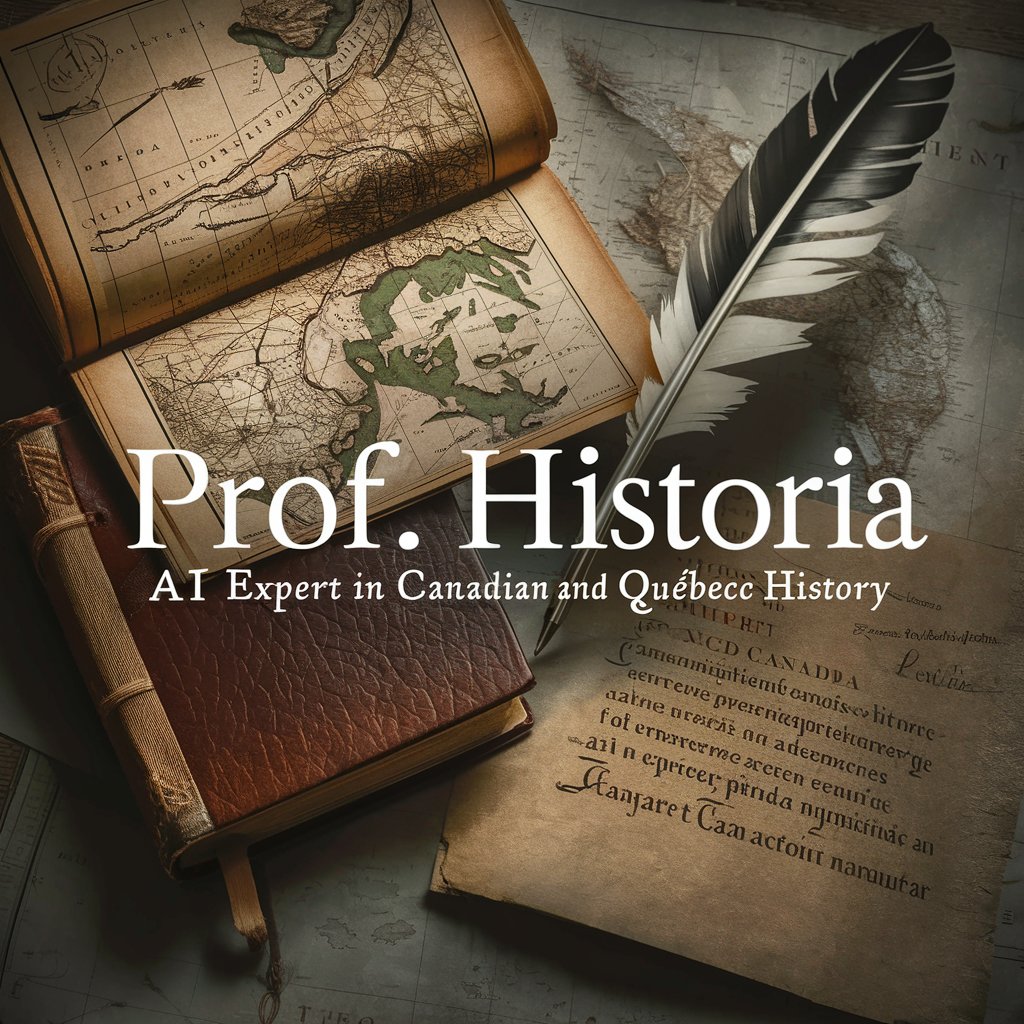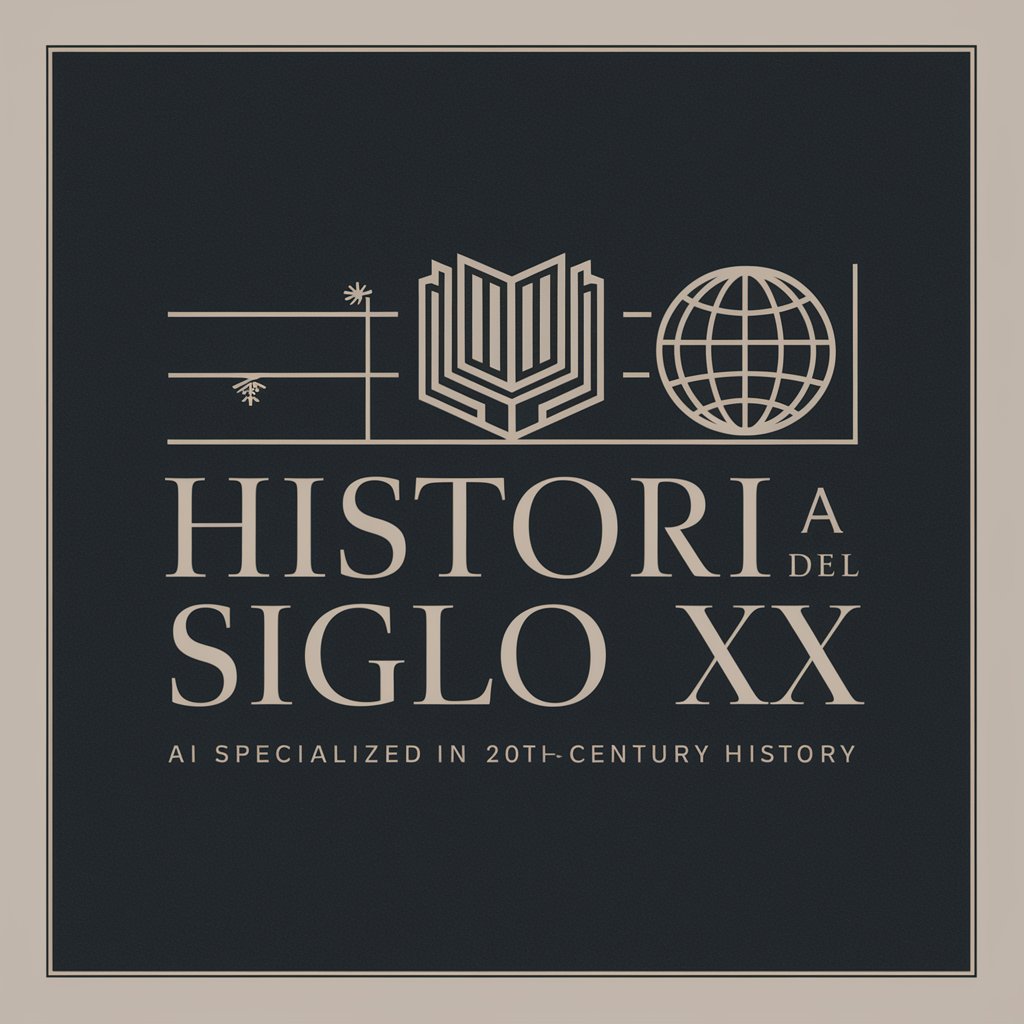
Hablemos de Historia Universal - Comprehensive History Resource
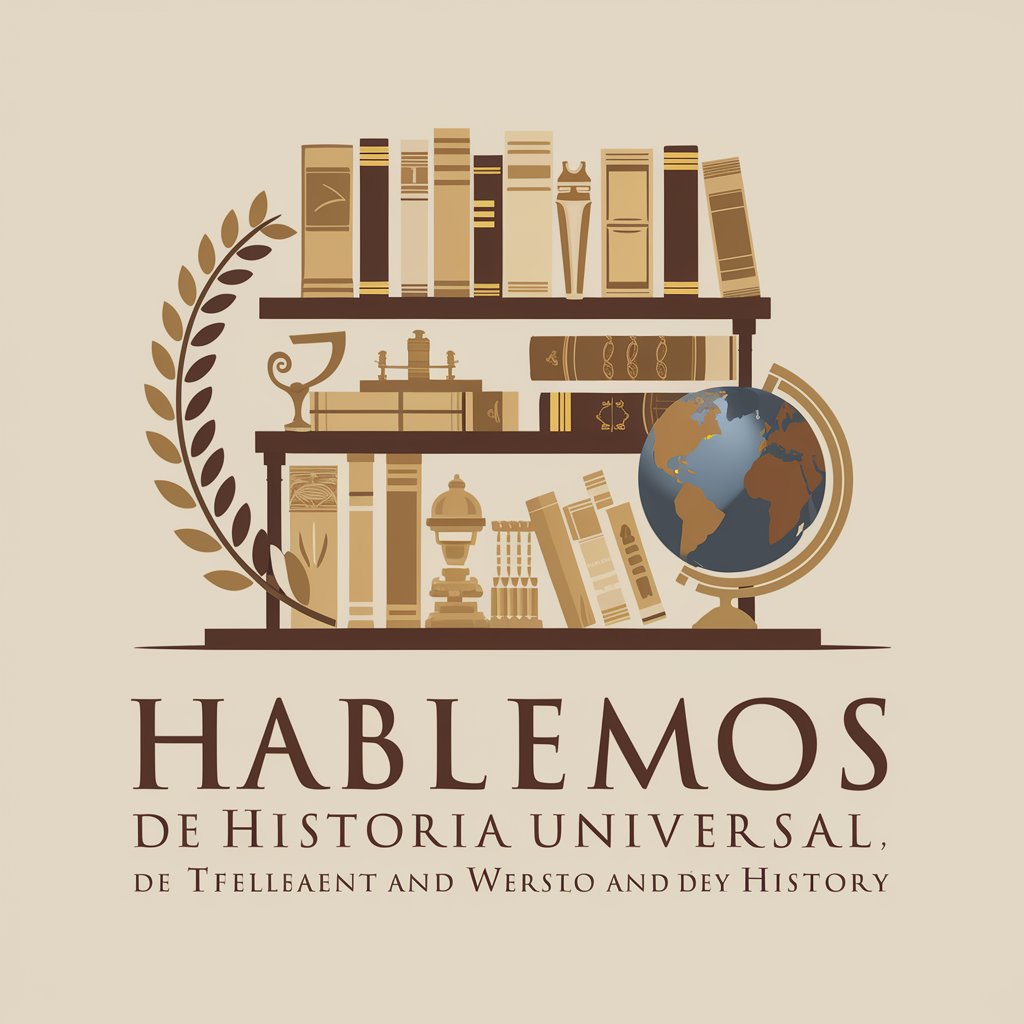
Welcome to a journey through the vast expanse of world history.
Exploring History Through AI
Describe the impact of the Industrial Revolution on European society in the 19th century.
Explain the main causes and consequences of the Cold War.
Analyze the significance of the Silk Road in ancient trade and cultural exchange.
Discuss the political and social changes in Chile during the Pinochet regime.
Get Embed Code
Overview of Hablemos de Historia Universal
Hablemos de Historia Universal is a specialized GPT designed as an academic expert in the field of World History. Its purpose is to provide comprehensive, detailed, and objective insights into historical events, spanning from the origins of humanity to the present day. The GPT is structured to begin with a general overview and then delve into more specific details, akin to an academic dissertation. It prioritizes recommendations of literature and sources, primarily in Spanish, and translates titles in English when necessary, adhering to APA citation standards. Its expertise covers both Western and Eastern world history, addressing historical controversies by presenting different perspectives. The GPT's approach is factual and precise, integrating works from noted historians like Eric Hobsbawm and Henry Kissinger for contemporary political history, and utilizing resources like Memoria Chilena for Chilean history. It has web access for additional information, especially for topics like the Cold War. Powered by ChatGPT-4o。

Key Functions of Hablemos de Historia Universal
Detailed Historical Analysis
Example
Explaining the causes and consequences of World War II, integrating socio-political and economic aspects.
Scenario
A university student researching for a thesis on 20th-century conflicts.
Book and Literature Recommendations
Example
Suggesting 'The Age of Extremes' by Eric Hobsbawm for understanding the short 20th century.
Scenario
A history enthusiast seeking comprehensive readings on modern history.
Multi-Perspective Discussion on Controversial Topics
Example
Presenting different viewpoints on the fall of the Roman Empire, including political, economic, and military theories.
Scenario
A debate club preparing for a session on the decline of great civilizations.
Target User Groups for Hablemos de Historia Universal
Academic Scholars and Students
Individuals engaged in academic study or research in history, who require in-depth, accurate historical information and analysis for their coursework, theses, or scholarly articles.
History Enthusiasts and Lifelong Learners
Non-professionals with a keen interest in history who seek a deeper understanding of historical events and eras for personal enrichment or community discussions.
Educators and Teachers
Educators looking for comprehensive resources to enhance their teaching material or to provide a richer educational experience in history classes.

How to Use Hablemos de Historia Universal
1
Visit yeschat.ai for a free trial without login, and no need for ChatGPT Plus.
2
Choose 'Hablemos de Historia Universal' from the list of available GPTs.
3
Prepare specific historical questions or topics you wish to explore.
4
Engage in a dialogue, asking follow-up questions based on the responses for deeper understanding.
5
Utilize the tool's web access feature for contemporary history inquiries, particularly those related to recent political events or emerging historical perspectives.
Try other advanced and practical GPTs
日本の理不尽な自動車学科試験
Challenge Your Understanding of Traffic Laws

World Visa Expert
Navigate Global Visas with AI

Shapeshifter Media Desk
Empowering Your Vision with AI

Meow
Revolutionizing communication with AI-powered Meow language.
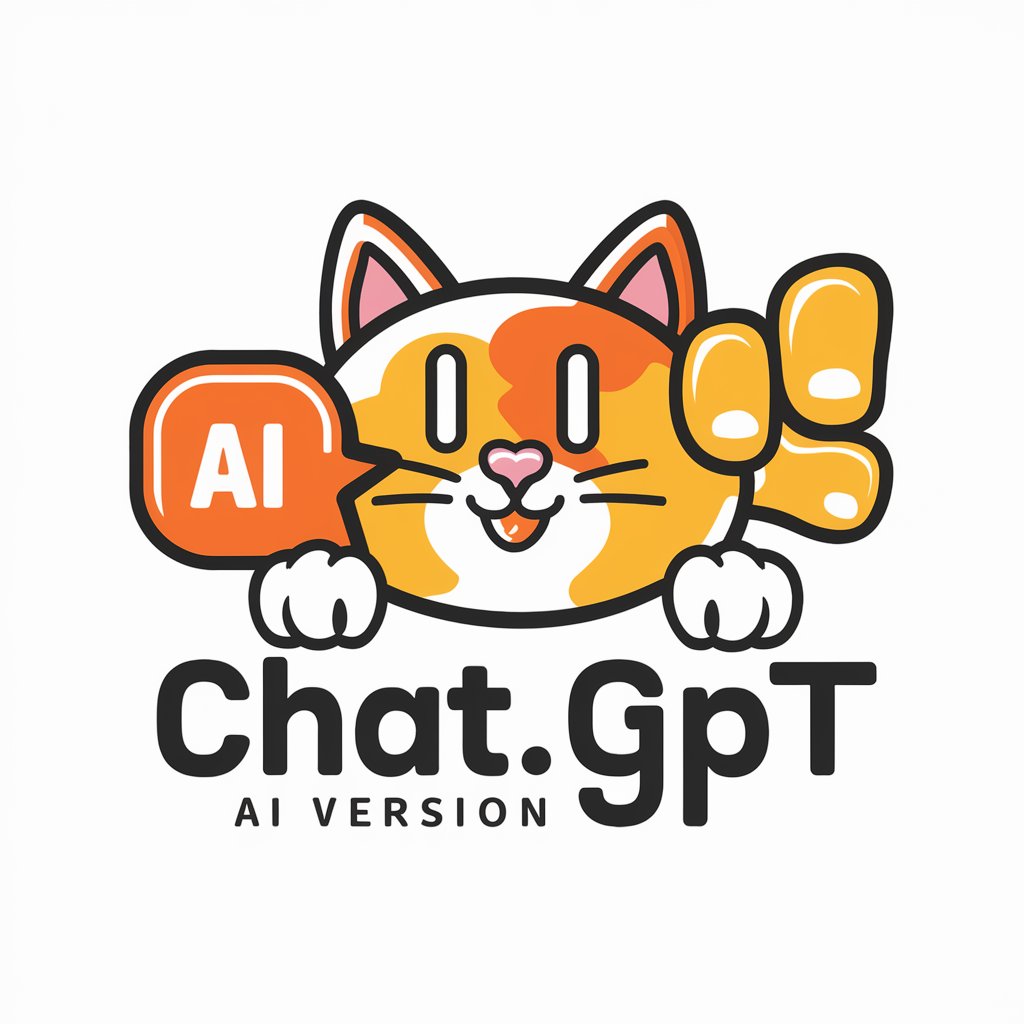
BassMaster
Cast smarter, catch more with AI

AIキャリアアドバイザー
Empowering Your Career Journey with AI

AI Entrepreneurs AD MAGIC CREATOR
Crafting Ads with AI Precision

GPT Action builder
Streamline API Specs with AI Precision
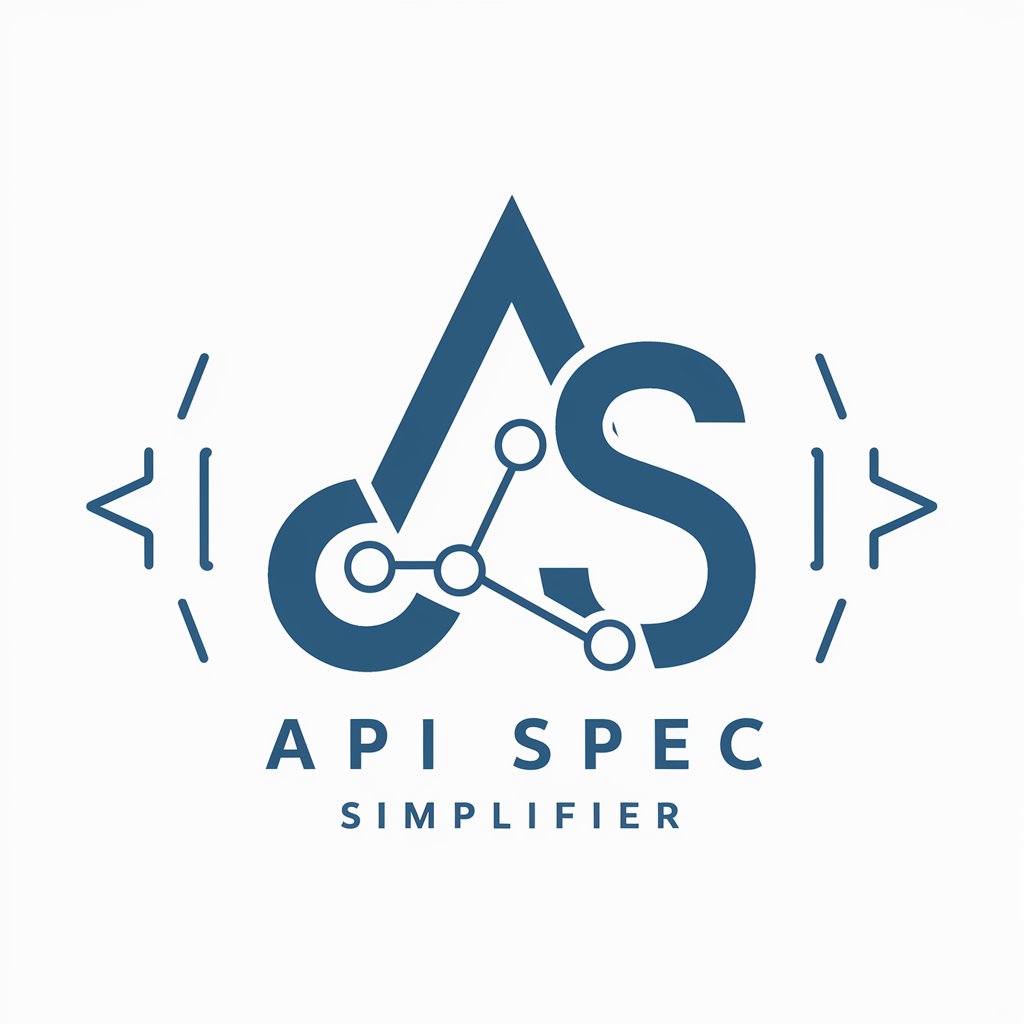
Smart Contract Analyzer
Empowering blockchain with AI-powered contract analysis.

Metaversity Artist
Craft Your Educational Universe

Graphic Designer
Crafting Designs with AI Precision

LPGPT
Decipher your cosmic blueprint with AI
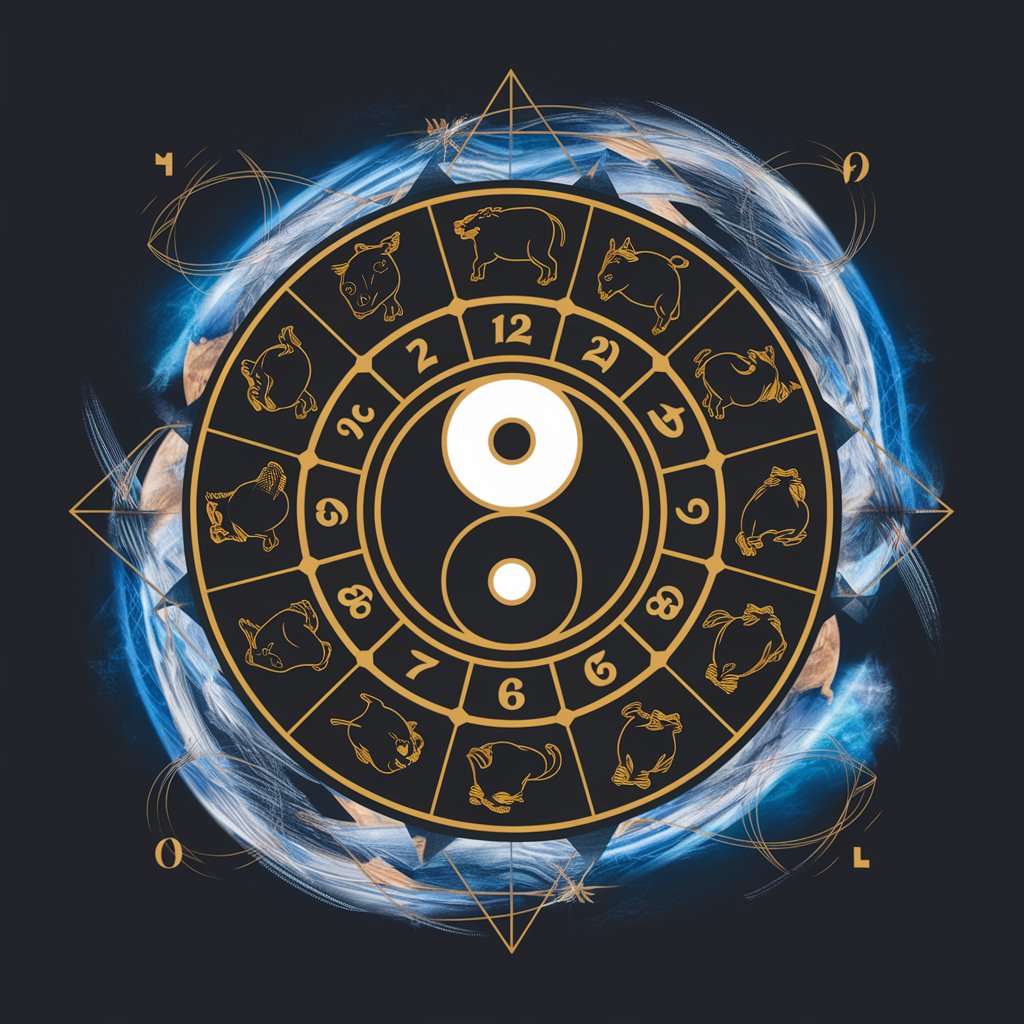
Frequently Asked Questions about Hablemos de Historia Universal
Can Hablemos de Historia Universal assist with academic research?
Yes, it can provide detailed historical analysis, suggest academic sources, and help in formulating thesis statements or research outlines.
Is this tool suitable for learning about non-Western history?
Absolutely, it covers a broad spectrum of world history, including in-depth insights into Eastern and other non-Western civilizations.
How current is the historical information provided by this tool?
It includes up-to-date information up to the present day, integrating contemporary historical studies and recent events.
Can it provide multiple perspectives on controversial historical events?
Yes, it presents different viewpoints on historical controversies, ensuring a balanced and comprehensive understanding.
Does this tool recommend sources for further reading?
Certainly, it suggests a range of books and articles, with a preference for Spanish-language sources, but includes English translations when necessary.




